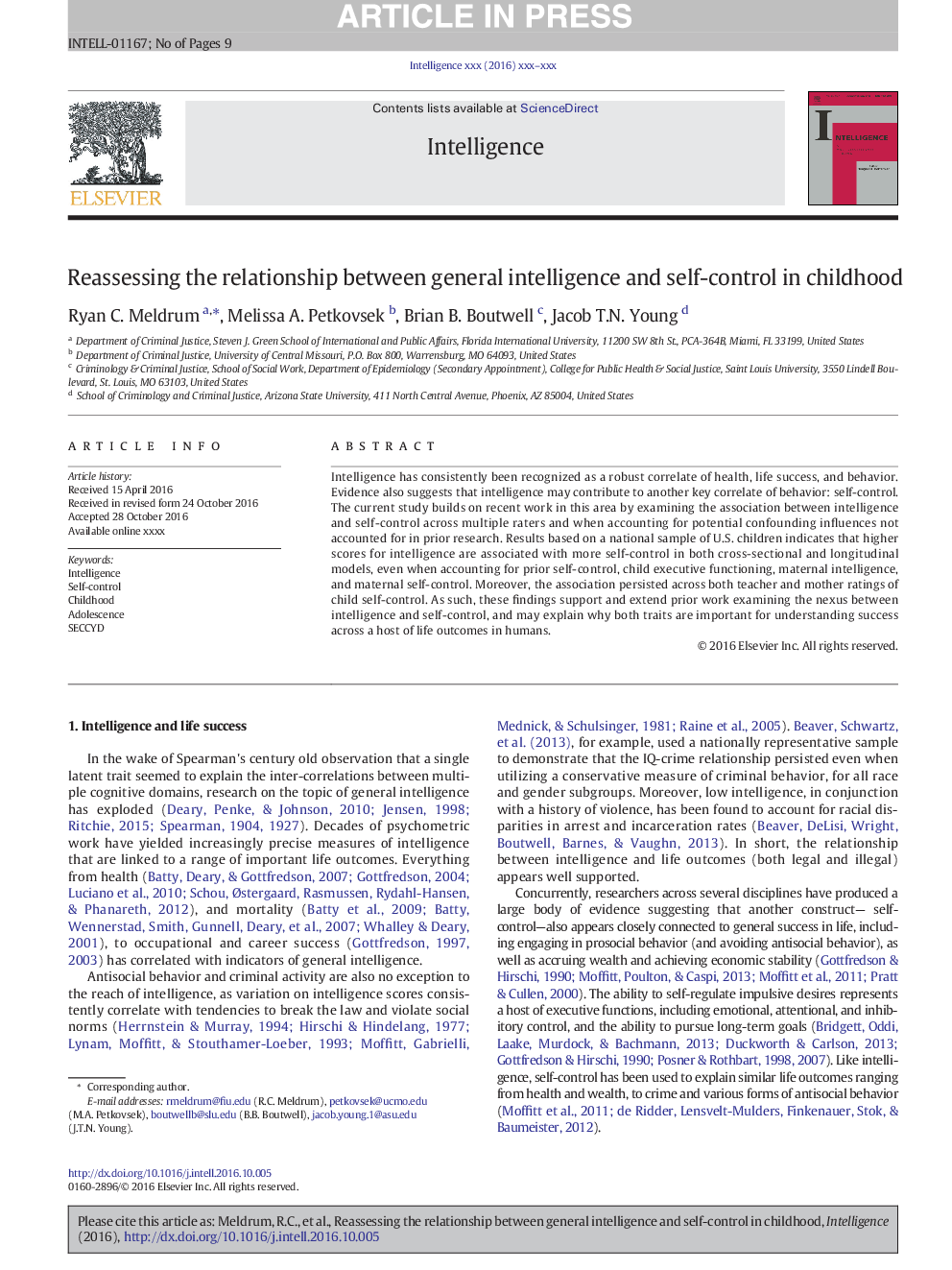ترجمه فارسی عنوان مقاله
بازنگری رابطه بین هوش عمومی و کنترل خود در دوران کودکی
عنوان انگلیسی
Reassessing the relationship between general intelligence and self-control in childhood
| کد مقاله | سال انتشار | تعداد صفحات مقاله انگلیسی |
|---|---|---|
| 150834 | 2017 | 9 صفحه PDF |
منبع

Publisher : Elsevier - Science Direct (الزویر - ساینس دایرکت)
Journal : Intelligence, Volume 60, JanuaryâFebruary 2017, Pages 1-9
ترجمه چکیده
اطلاعات به طور پیوسته به عنوان یک همبستگی قوی در سلامت، موفقیت در زندگی و رفتار شناخته شده است. شواهد همچنین نشان می دهد که هوش ممکن است به یکی دیگر از کلیدی مرتبط با رفتار کمک کند: خود کنترل. مطالعه حاضر بر روی فعالیت های اخیر در این زمینه با بررسی ارتباط بین هوش و خود کنترل در سراسر ردیاب چندگانه و زمانی که حسابداری برای تاثیرات بالقوه مخلوط که در تحقیقات قبلی به حساب نمی آمد. نتایج بر اساس یک نمونه ملی از کودکان ایالات متحده نشان می دهد که نمرات بالاتر برای هوش با کنترل بیشتر خود در مدل های مقطعی و طولی مرتبط هستند، حتی اگر حسابرسی برای کنترل خود، کنترل عملکرد مادر، هوش مادرانه و خود مادر -کنترل. علاوه بر این، انجمن همچنان در رتبه بندی معلمان و مادران خود کنترل فرزند قرار دارد. به همین ترتیب، این یافته ها حمایت و گسترش کار قبلی را بررسی رابطه بین هوش و خود کنترل، و ممکن است توضیح دهد که چرا هر دو از ویژگی های مهم برای درک موفقیت در بسیاری از پیامدهای زندگی در انسان مهم است.

